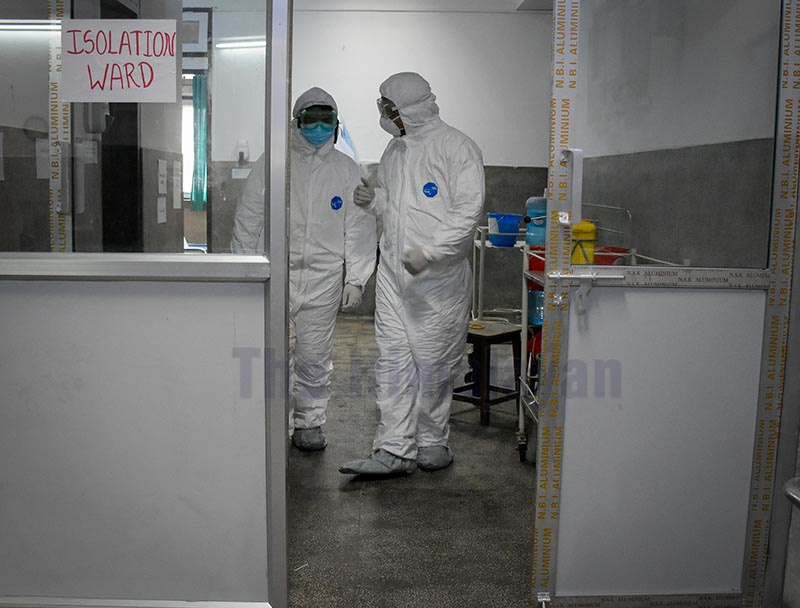Docs favour treatment only in designated hospitals
Kathmandu, March 23
Doctors involved in critical care say the government would best serve the public if it considered providing treatment to COVID-19 patients from designated hospitals in the event of an outbreak.
General Secretary of Nepalese Society of Critical Care Medicine Hem Raj Paneru said although the government had asked hospitals to have in place isolation wards to separate COVID-19 patients immediately without referring them to other hospitals, all hospitals did not have the required facilities and trained human resources to deal with the situation. “Until now, family members of a patient bring medicines from pharmacies and other medical stuff for patients, but if an outbreak hits Nepal, trained health professionals should run errands for patients to prevent infection from the patients to other people, including their family members,” he said.
Paneru said there should be designated hospitals in cities and other areas to treat COVID-19 patients as doing so in other hospitals could increase the risk of infection. “There should be separate ambulances to transport suspected COVID-19 patients or else the risk of infection among health professionals accompanying the patient in the ambulance will be high,” he argued.
He said if the government wanted to convert any non-designated hospital into a designated hospital for treating COVID-19 patients, then it must transfer other patients from the non-designated hospital. Paneru said despite the government’’s claim that it would provide adequate personal protective equipment to health professionals and doctors to be deployed on the frontline of COVID-19 treatment, doctors were not confident about the government’s preparedness.
Doctors and health professional tending to a COVID-19 patient will need at least 10 PPE in 24 hours,” he said. He added that if the pandemic hit Nepal, there would be acute shortage of protective gear. “Even developed countries are facing shortage of protective equipment and we can imagine how serious the situation may be in our country where medical infrastructure is far from adequate,” he added. He said the government needed to think about producing protective gear domestically to ensure that health professionals did not face its shortage in the wake of COVID-19 outbreak.
Bhogendra Dotel, who heads the Logistics Management at the Department of Health, said the government had initiated the process of procuring 75,000 PPE and had also sought help of other supporting agencies that had assured the government of providing PPE within three weeks.
“At present, we are focusing on providing adequate PPE to the designated hospitals, including those designated by provincial governments to diagnose and treat COVID-19 patients and districts where quarantine centres had been set up. We are preparing to arrange the equipment keeping in mind the infection rate in other COVID-19-hit countries. We’ll ensure that health professionals who diagnose and treat COVID-19 patients won’t have shortage of the equipment,” he said.






